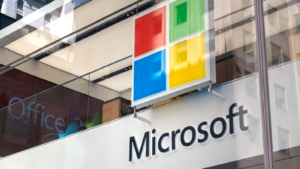
Although a new year tends to bring optimism in the market, current vagaries warrant a discussion about bulletproof stocks to buy for 2024. To be fair, even the most influential voices in government are hinting at a positive outcome. Nevertheless, nothing is guaranteed.
For example, Wall Street has responded positively to the Federal Reserve’s apparent willingness to shift monetary policy. After roughly two years of aggressive interest rate hikes, Fed Chair Jerome Powell sees the possibility of lowering borrowing costs next year. On paper, that doesn’t sound like the most ideal time to consider stable stocks. Rather, investors may want to consider higher-risk growth opportunities.
Still, let’s consider the context. With the U.S. jobs market continuing to print robust numbers, the idea of rate cuts seems premature. After all, that would imply expanding the inflation problem, not addressing it. As well, a global recession – which is a non-zero probability – would hurt risk-on assets.
With so many questions, investors should at least consider these bulletproof stocks to buy for 2024.
Waste Management (WM)

What it is: Presenting about as self-explanatory of a company name as you can get, Waste Management (NYSE:WM) easily qualifies as one of the bulletproof stocks to buy for 2024. After all, the underlying business is a dirty job but someone has to do it. It’s not particularly sexy but WM doesn’t leave investors stranded for too long. Since the January opener, shares gained over 13%.
Relevance: Unless you envision a world where humans don’t produce trash, WM should belong on your list of stable stocks. Again, it’s not a sexy growth opportunity. But what WM does is to provide confidence heading into an uncertain future. In particular, the company benefits from slow-and-steady revenue growth. Also, its gross margin comes in at around 37% to 38%, in line with historical norms.
Pros: Analysts appreciate the reliability of WM, rating it a moderate buy with a $182.44 price target. It also offers a modest dividend yield of 1.6%.
Cons: Basically, WM is the investment market’s equivalent of a prevent defense. You buy it to secure the win, not necessarily to score a 70-yard bomb.
Public Service Enterprise (PEG)

What it is: Based in Newark, New Jersey, Public Service Enterprise (NYSE:PEG) is a diversified energy firm. Its biggest subsidiary is the Public Service Electric and Gas Company, a regulated gas and electric utility firm. Fundamentally, PEG should benefit from the natural monopoly effect. Essentially, utilities are too deeply entrenched in their chosen markets to be displaced.
Relevance: If you’re looking for bulletproof stocks to buy for 2024, it’s difficult to overlook the utility space. According to accounting and consulting firm Deloitte, experts project that next year, electricity prices will remain steady. Further, sales should rise about 2%. We’re not talking about groundbreaking stuff here. Instead, it’s all about the consistent and predictable demand profile.
Pros: For bargain-hunting investors, PEG trades at a trailing-year earnings multiple of 10.98X. That’s conspicuously lower than the sector median of 14.44x. Also, analysts peg shares as a moderate buy with a $64.90 price target.
Cons: The long-term chart performance of PEG has been slow indeed so it’s good if you’re literally seeking stable stocks.
Visa (V)

What it is: A financial services giant, Visa (NYSE:V) of course is known universally as a payment card provider. Per its public profile, the company facilitates electronic funds transfers throughout the world, most commonly through Visa-branded credit cards, debit cards and prepaid cards. While the sector presents risks, V has performed well, basically matching the performance of the S&P 500 this year.
Relevance: If borrowing costs decline as the Fed seems to be hoping for, then Visa could rise on boosted consumer sentiment. Under any inflationary cycle (“regular” inflation up to hyperinflation), money today is worth more than money tomorrow. So, an incentive exists to spend that money today. However, if we fall into rough waters, cynically, consumers will turn to credit cards to make ends meet. That’s already happening, actually.
Pros: Visa enjoys steady revenue growth and is consistently profitable thanks to its robust margins. Analysts also rate shares a consensus strong buy with a $281.74 price target.
Cons: With U.S. credit card debt collectively topping $1 trillion, a fundamental question exists about the viability of Visa as one of the bulletproof stocks.
McDonald’s (MCD)

What it is: A company that truly needs no introduction, McDonald’s (NYSE:MCD) is a powerhouse in the fast-food industry. Indeed, I would argue that it’s a cultural icon representing American-style capitalism at its finest. After all, the brand’s debut in the Soviet Union likely helped thaw the Cold War. Now, the company is seeking to reboot itself with its CosMc’s spinoff.
Relevance: Fundamentally, I believe McDonald’s makes a great case as one of the stable stocks that could rise amid the challenges. With CosMc’s, the Golden Arches is putting Starbucks (NASDAQ:SBUX) right in its crosshairs. By offering the customization options that consumers of Generation Z crave at a lower price point, MCD almost seems a no-brainer. I don’t want to get ahead of myself but the new initiative is exciting.
Pros: Ironically, MCD isn’t much of a discount in terms of valuation. However, the company enjoys solid revenue growth and consistent profitability via excellent margins. And who knows? MCD could be undervalued based on the future potential of CosMc’s. Thus, it’s one of the bulletproof stocks.
Cons: Despite the excitement over the spinoff, it will be tough to displace Starbucks.
AbbVie (ABBV)

What it is: An American pharmaceutical company, AbbVie (NYSE:ABBV) offers a range of compelling therapeutics. Per its public profile, the company’s primary product is Humira, which is approved to treat various autoimmune diseases. Further, thanks to its purchase of Allergan, AbbVie now controls Botox, which should be a big winner over the long run. Thus, it’s one of the stable stocks to consider.
Relevance: Generally speaking, blue-chip pharmaceuticals offer a level of economic insulation. Cynically, when people suffer from critical conditions, they often do whatever it takes to get better. For ABBV specifically, the global botulinum toxin – which is what Botox is – will reach a valuation of $11.1 billion at year’s end. Further, the sector will expand at a compound annual growth rate (CAGR) of 9.8%, boding well for AbbVie.
Pros: Thanks to its robust profitability metrics, AbbVie offers a solid dividend yield of 3.84%. Analysts also rate shares a moderate buy with a $172.50 price target.
Cons: Admittedly, ABBV hasn’t had the best performance this year as one of the bulletproof stocks.
Microsoft (MSFT)

What it is: Another company that needs no introduction, Microsoft (NASDAQ:MSFT) is a computer software and hardware giant. While the company over the years has seen its dominance challenged from enterprises like Apple (NASDAQ:AAPL), the reality is that Microsoft owns the professional office application ecosystem. After all, when was the last time you forwarded a Numbers spreadsheet rather than an Excel file?
Relevance: Again, while Microsoft has seen challenges to its digital hegemony, it still dominates in key areas. For example, in terms of desktop operating systems, Microsoft Windows commands a nearly 69% market share. In other words, the brand is practically ingrained in the broader digital space. Also, with Microsoft Office, the company enjoys consistent and predictable revenue growth.
Pros: While not the most exciting idea among bulletproof stocks, Microsoft brings to the table strong revenue growth and consistent profitability. As well, analysts peg shares a consensus strong buy with a $422.70 average price target.
Cons: MSFT already enjoyed a strong year in 2023 thanks to its initiatives in artificial intelligence. Therefore, it’s questionable how much it can rise in 2024.
Kroger (KR)

What it is: A supermarket and multi-department store operator, Kroger (NYSE:KR) represents a stalwart in the grocery store industry. Fundamentally, KR attracts investors because of its everyday demand. Unless humans find a way to survive and thrive without convenient access to food and water, Kroger should rank among the stable stocks to buy for 2024.
Relevance: While I don’t expect meme traders to clamor over Kroger, the company should benefit no matter what happens with the economy. Let’s say we enter a decisive bull market. Fine, people will still need to eat. If instead, we fall into a recession, Kroger should benefit from the trade-down effect. That is, households will likely eschew eating out at restaurants and cook at home, saving money.
Pros: One of the main factors favoring KR as one of the bulletproof stocks is the valuation. Trading at 10.14x forward earnings, it’s well below the sector median of 15.4x. Also, analysts rate shares a moderate buy with a $51.36 price target.
Cons: Since June of last year, KR hasn’t moved much so expectations need to be kept in check.
On the date of publication, Josh Enomoto did not have (either directly or indirectly) any positions in the securities mentioned in this article. The opinions expressed in this article are those of the writer, subject to the InvestorPlace.com Publishing Guidelines.




